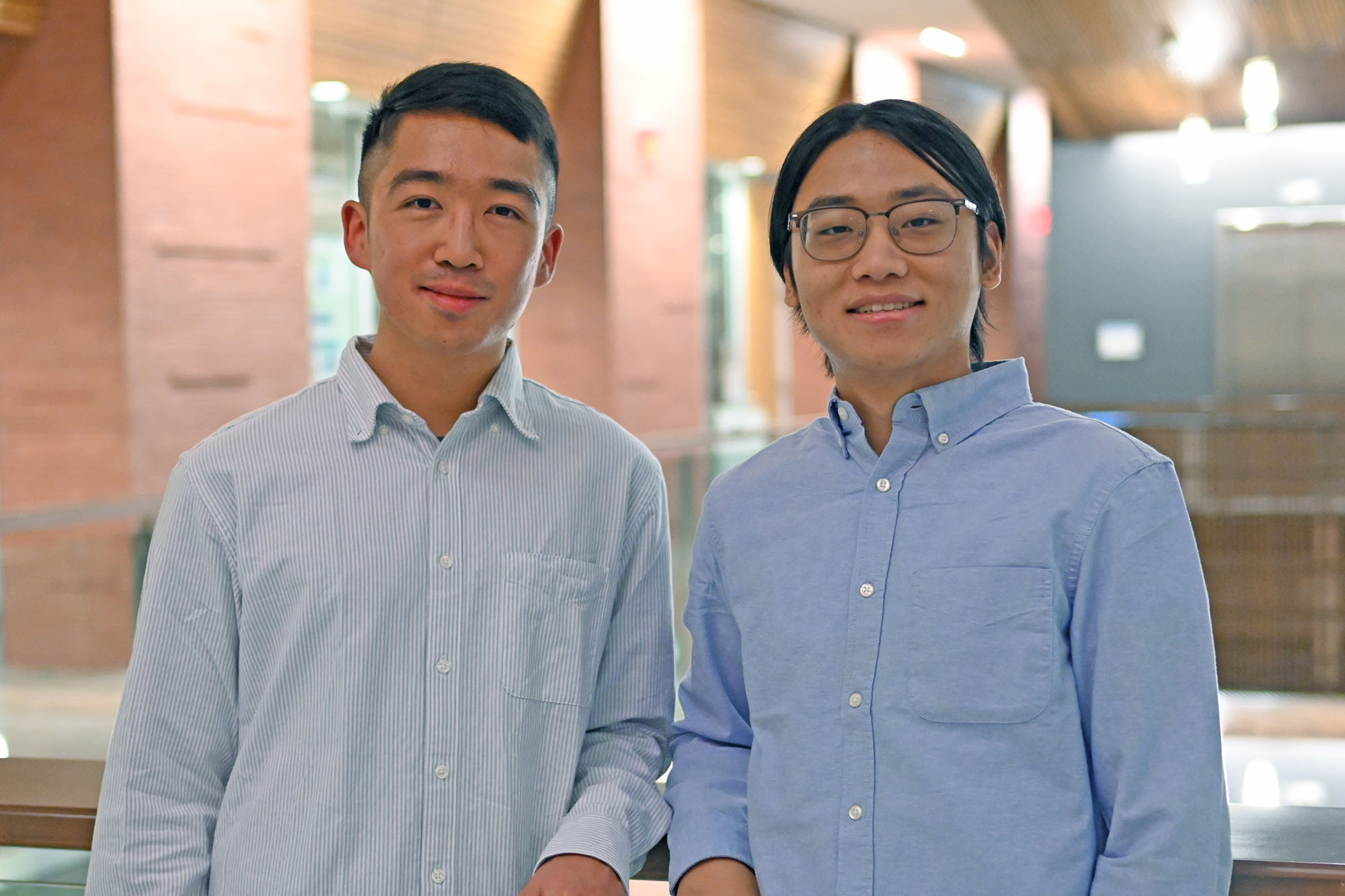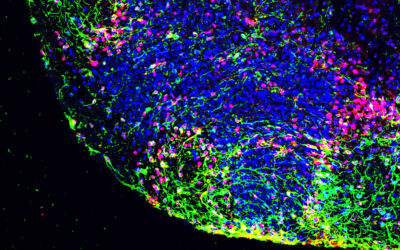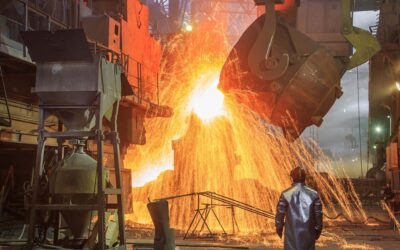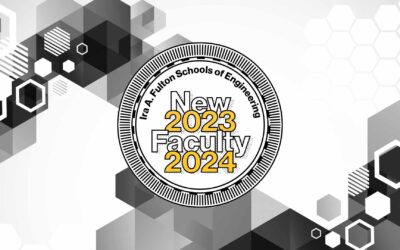Industry award creates opportunities for future engineers
Graduate students earn Qualcomm Innovation Fellowship for machine learning research
By Erik Wirtanen
October 20, 2023

Machine learning, a subfield of artificial intelligence, focuses on developing algorithms and statistical models that improve computers’ performance on specific tasks by learning from data — eliminating the need for human input to change the programming.
Shuaifeng Jiang and Hao Luo, electrical engineering doctoral students in the Ira A. Fulton Schools of Engineering at Arizona State University, received a 2023 Qualcomm Innovation Fellowship for their work to improve wireless communications performance using machine learning.
Jiang and Luo presented their proposal, based on their research in ASU’s Wireless Intelligence Lab under Ahmed Alkhateeb, an assistant professor of electrical engineering in the Fulton Schools, to a panel of Qualcomm experts who ranked students’ applications and presentations in a competitive process. The ASU students’ success in securing the fellowship reflects Qualcomm’s recognition of the significance of their research and its alignment with the company’s vision for communication systems using 6G and future generations of wireless technology.
The Qualcomm Innovation Fellowship focuses on creating and supporting opportunities for doctoral students to explore new ideas and aims to instill an entrepreneurial mindset in participants from top universities in North America.
The fellowship program provides each winner with a yearlong award including $100,000 in funding, mentorship from Qualcomm engineers and experiences for students to move toward turning their proposals into functioning products. This year, members of 18 teams were selected as fellows.
Jiang and Luo’s fellowship project, titled “ML Designs for Robust and Generalizable CSI feedback and Beam Management Across Environments and Devices,” proposes the development of machine learning algorithms for next-generation communication systems that will deploy large numbers of wireless network antennas at base stations and in mobile users’ devices. The proposed machine learning algorithms aim to direct wireless signals across various locations and devices more effectively than is currently possible, enhancing wireless networks’ efficiency in large-scale applications.
Alkhateeb, a faculty member in the School of Electrical, Computer and Energy Engineering — part of the Fulton Schools — and his students foresee the fellowship providing a great opportunity to amplify the impact of Jiang and Luo’s research while learning practical considerations in designing advanced communication systems from industry-leading experts at Qualcomm.
Luo says he and Jiang are excited for the opportunity the fellowship presents.
“The Qualcomm Innovation Fellowship is a recognition of the potential of our research,” he says. “Winning this prestigious fellowship not only brings a sense of accomplishment, but also motivates us to push the boundaries of innovation. We are eager to make the most of this opportunity and do impactful research.”
The Fulton Schools encourages faculty and students to develop an awareness of the commercialization value of their research through initiatives like Entrepreneurship + Innovation at Fulton Schools and ASU’s J. Orin Edson Entrepreneurship + Innovation Institute. They provide resources and support to help them present, pitch and evaluate their entrepreneurial ideas, and in many cases file patents. Programs like these helped the students recognize their machine learning solution was worth sharing.
Luo says he and Jiang’s research experience in the Wireless Intelligence Lab also prepared them to apply their work to real-world problems.
“Working under the supervision of Professor Alkhateeb gave us the opportunity to explore novel ideas and address practical challenges, which makes our research more visible and impactful,” Luo says. “Additionally, we gained experience in machine learning, its subset deep learning, signal processing and wireless communication, putting us in a unique position to pursue this interdisciplinary research idea.”
Alkhateeb commended his students’ dedication and expressed confidence the fellowship will advance their research.
“I’m very proud of Shuaifeng and Hao,” Alkhateeb says. “They prepared diligently and worked hard throughout the fellowship selection process, and I’m very happy that they were awarded it. Beyond the financial support, I believe this fellowship will advance their research and deepen their understanding of the practical aspects of designing 5G and 6G communication systems, especially because they will be interacting closely with Qualcomm’s engineers and researchers.”
Fulton
Researcher
Ahmed Alkhateeb
Assistant Professor
School of Electrical, Computer and Energy Engineering
Related Stories
Discovering pathways for neural development
ASU researcher Madeline Andrews is identifying the role of leukemia inhibitory factor signaling pathways in brain growth
Curtailing unhealthy impacts of steel production
Fulton Schools chemical and materials engineering researchers aim to make steel manufacturing carbon-free and eco-friendly
ASU selected for Microelectronics Commons hub
The U.S. Department of Defense awarded ASU $39.8 M in CHIPS and Science Act funding to establish Southwest Advanced Prototyping (SWAP) Hub
Welcome, new faculty!
Join us in welcoming more than 50 new faculty to the Fulton Schools. These talented professionals bring skills and insights from leading laboratories and industry innovators across the nation and the world


